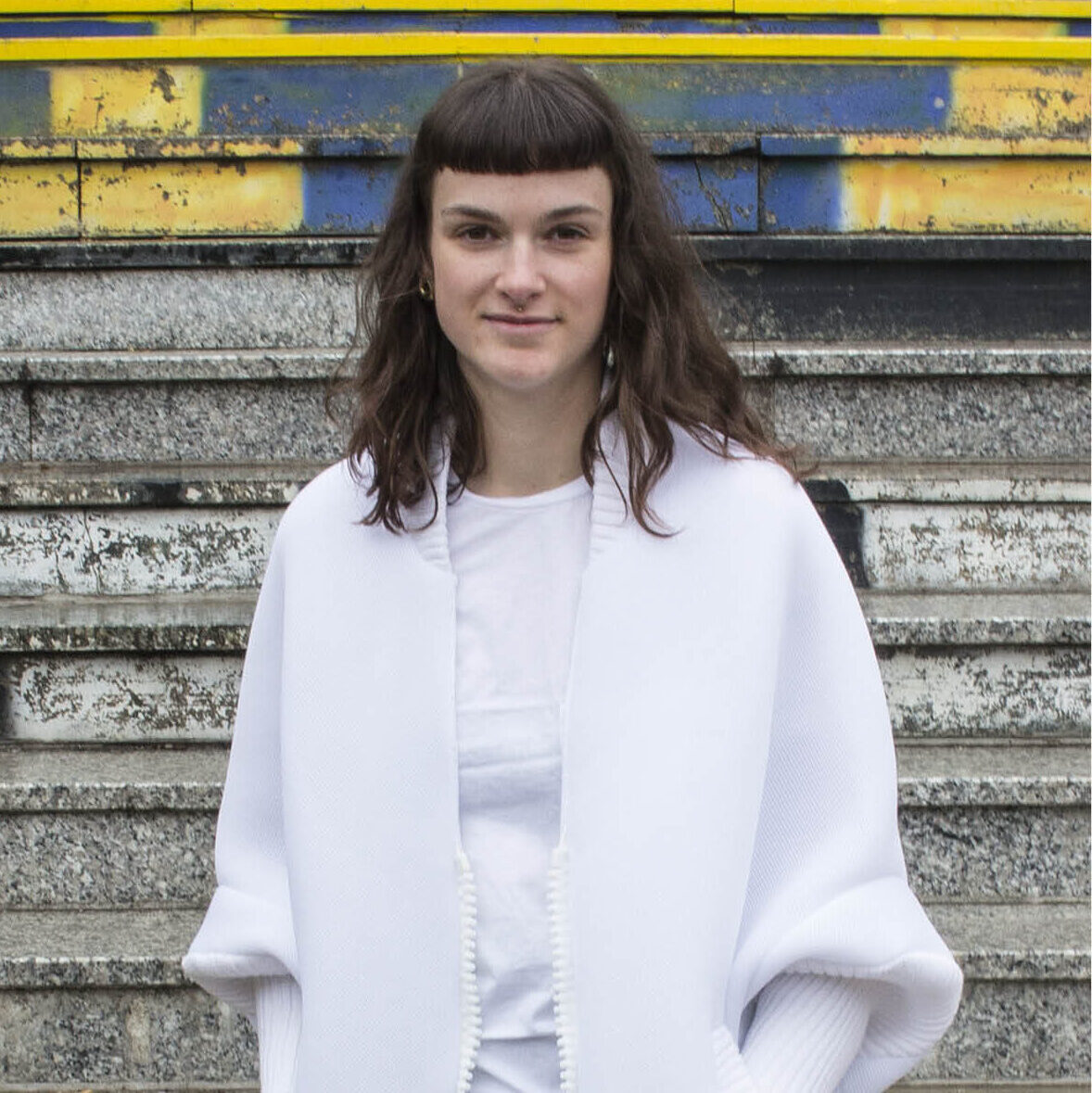IP/PRIVACY
DESIGN: Nicole Scheller
Germany
make me! 2021
The collection IP/PRIVACY stands for a self-determined handling of our privacy and identity. The Design and the wearable Technology, offers the wearer protection from various recognition systems by day and night, as well as the possibility to decide when and where to be in private.
At the same time IP/PRIVACY questions the purpose of clothing and what it should protect from. Especially in our highly digitalized world, where we are constantly surrounded by information structures, we can hardly protect ourselves from them. When it rains, we put on a rain jacket and when temperatures get too low, we wear gloves. But if we get caught in the crosshair of an identity-capturing technology, we are helpless. By evaluating our biometric data such as our face, the way we move or gesture, with the help of artificial intelligence more and more new procedures are being developed to capture and evaluate our appearance.
Only with the help of clothing can we protect our sensitive biometric data. Privacy not only promotes a healthy development of one’s personality but is also the basis for a democratic social system.
Advanced biometric recognition software, such as motion analysis or 3D scanning, include the body as a whole in their evaluation. The asymmetrical design and the voluminous shape, stand for a new product aesthetic. The advantages of this design language enable every wearer, male or female, to warp body contours, gender, height and weight while making a visual statement for privacy.
With IP/PRIVACY, privacy becomes literally wearable for everyone. The claim is to develop the greatest possible variation of solutions against different existing or future surveillance technologies. These technologies can change quickly and new ones will most likely be added. Above all, this creates a deeper understanding of how these technologies work and thus builds the scientific foundation of our work. Coupled with a wearable, modern design this forms our innovation model.
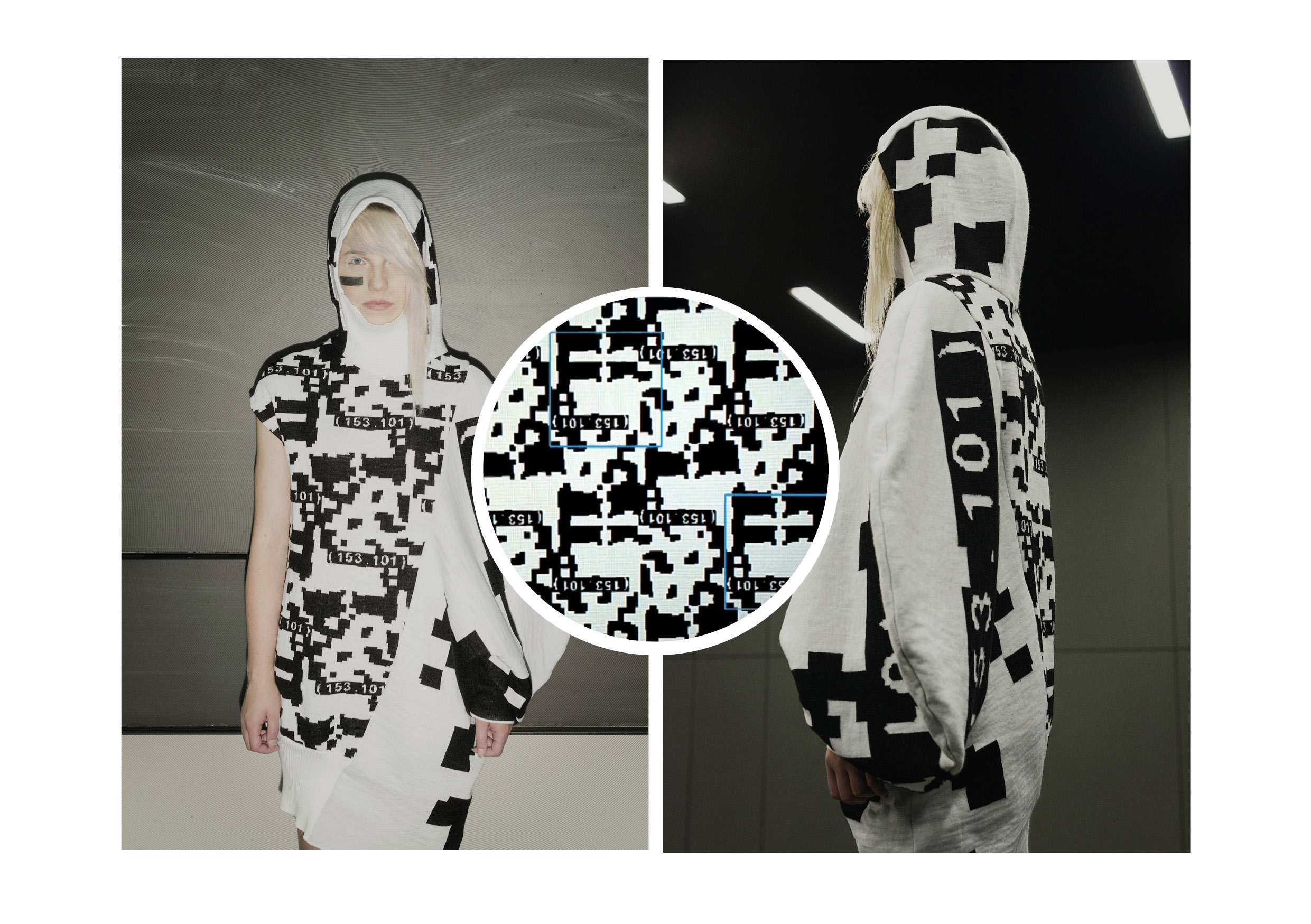
IP/PRIVACY, design: Nicole Scheller / from designer’s archive
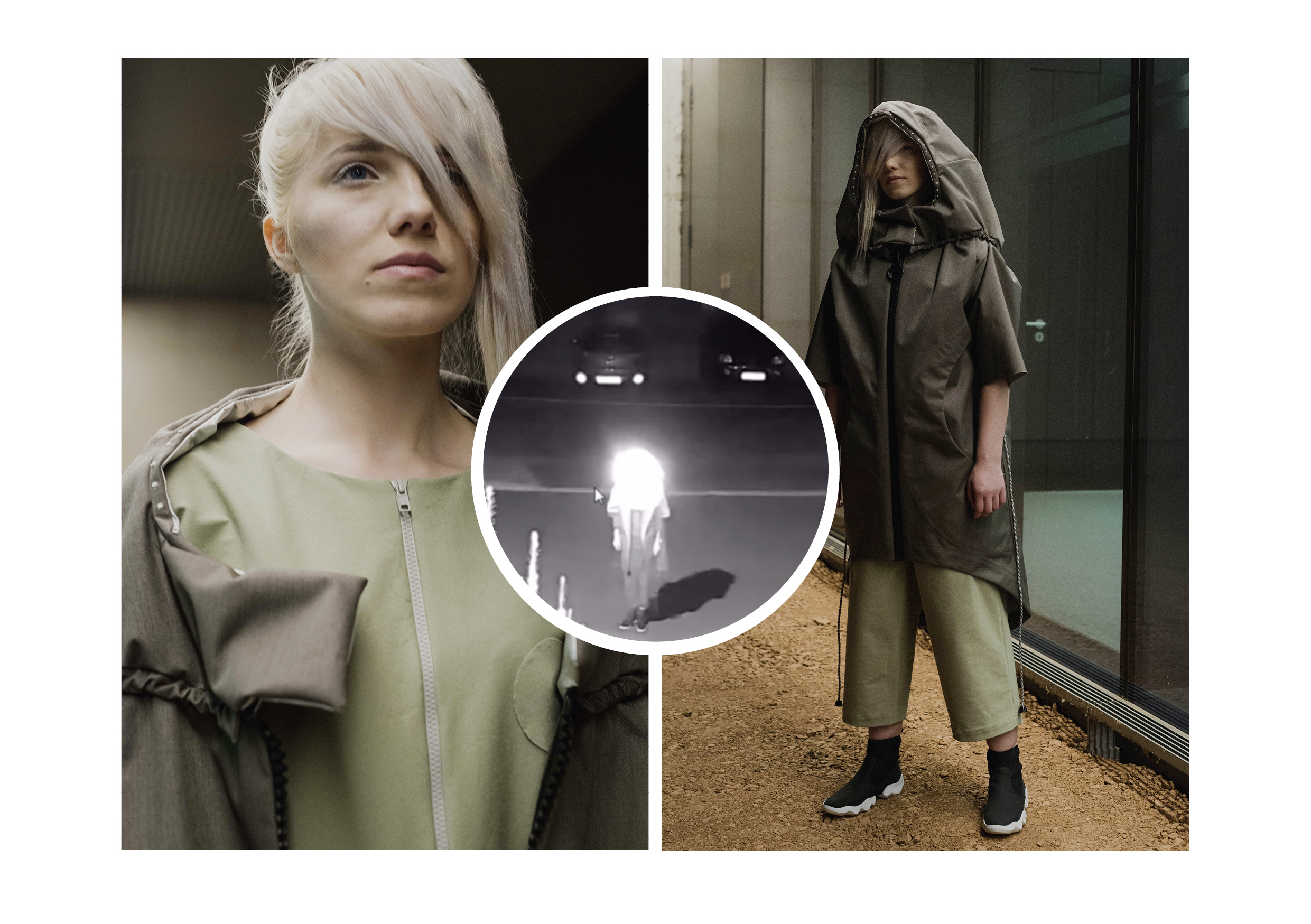
IP/PRIVACY, design: Nicole Scheller / from designer’s archive
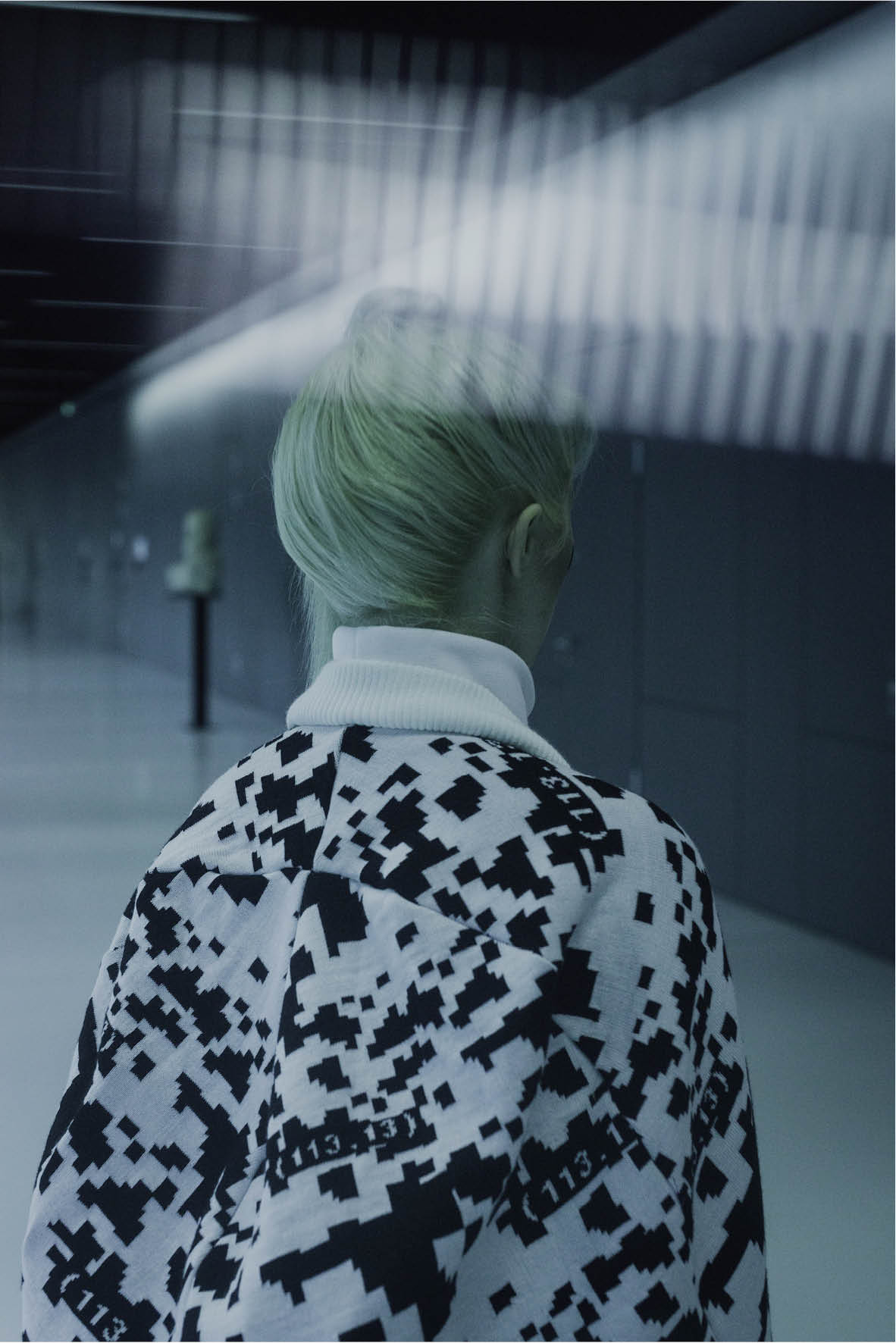
IP/PRIVACY, design: Nicole Scheller / from designer’s archive
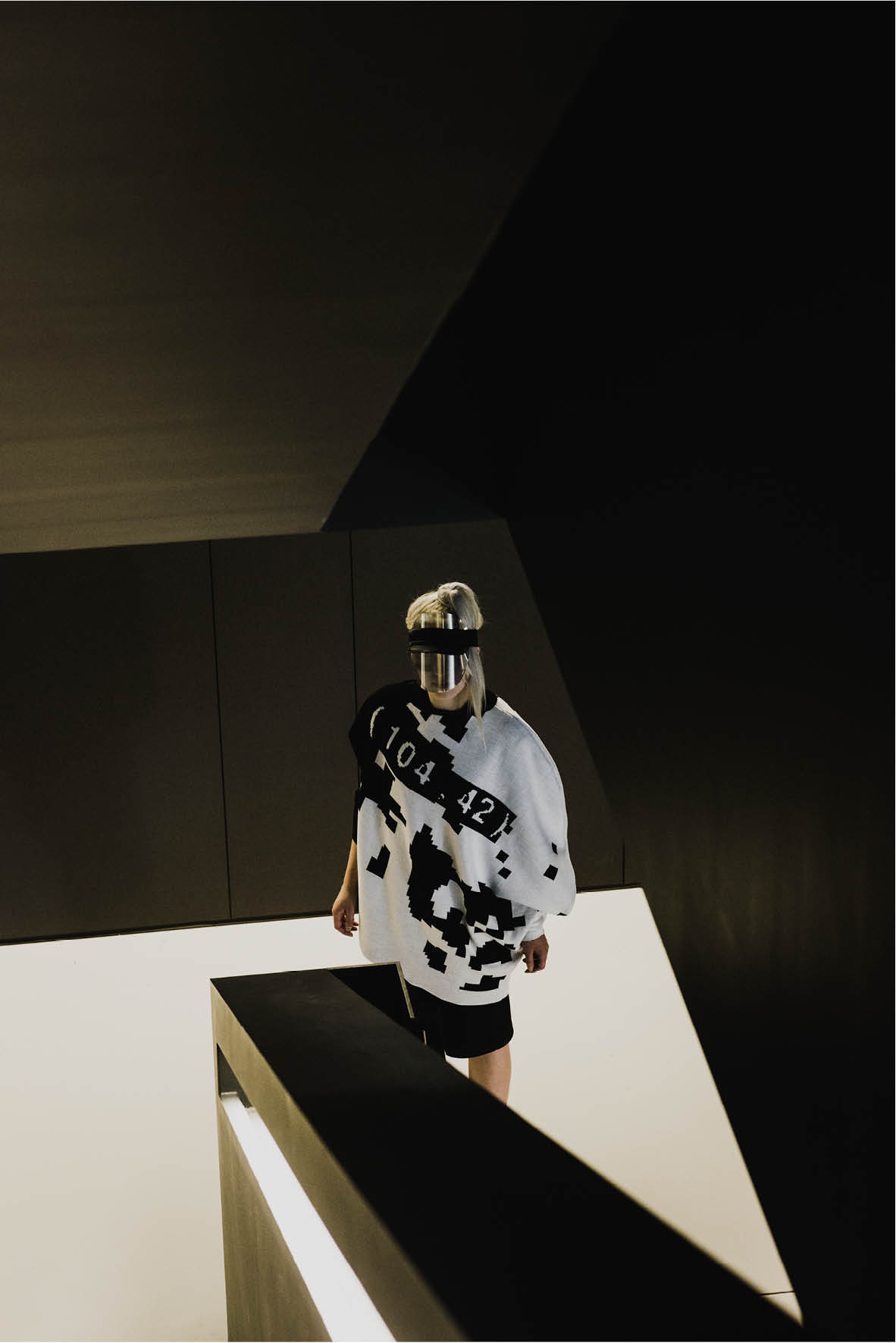
IP/PRIVACY, design: Nicole Scheller / from designer’s archive
Nicole Scheller
Nicole Scheller finished her studies in the field of Fashiondesign at the Faculty of Applied Arts Schneeberg in 2017. Her bachelor thesis “IP/PRIVACY” was honored as Best Thesis in 2017 and is a part of “Kultur- und Kreativpiloten Deutschland”. After attending numerous fairs like the Wear It festival in Berlin, the coat “urban Ghost” was nominated for the Saxon Design Award in 2018 in the category young designers. In order to enable future development, expand technical functionality as well as offer general support in the field of computer sciences, Marcel Göbe joined the project later on.
Nicole developed a conceptual way of working in which contemporary questions form the basis of her design. Based on an activist basic idea, she tries to direct the viewers attention to the background of the work and at the same time questions her own influence as a member of society. But her projects do not only focus on the problem. With the help of her design, Nicole also wants to communicate possible solutions.
When Nicole had the idea for a wearable anti-surveillance collection, the implementation of the prototypes was only possible after extensive research into the functionality of existing surveillance technologies. Based on this knowledge, the insights gained helped develop strategies for the collection. After much trial and error, the question arose as to how the found approaches could be integrated into fashion. The fashion designer Prof. Astrid Zwanzig and Prof. Ines Bruhn from the Faculty of Applied Arts in Schneeberg supported Nicole in her endeavor. In order for the technological part of the final thesis to be implemented as desired, Kevin Steiner, from the Faculty of Electrical Engineering at the University of Applied Sciences in Zwickau, provided knowledge about the use of LEDs. The knitted parts were realized with the help of Andreas Degen, head of the Technical Center of the Endowed Chair of Textile Technologies Chemnitz.
